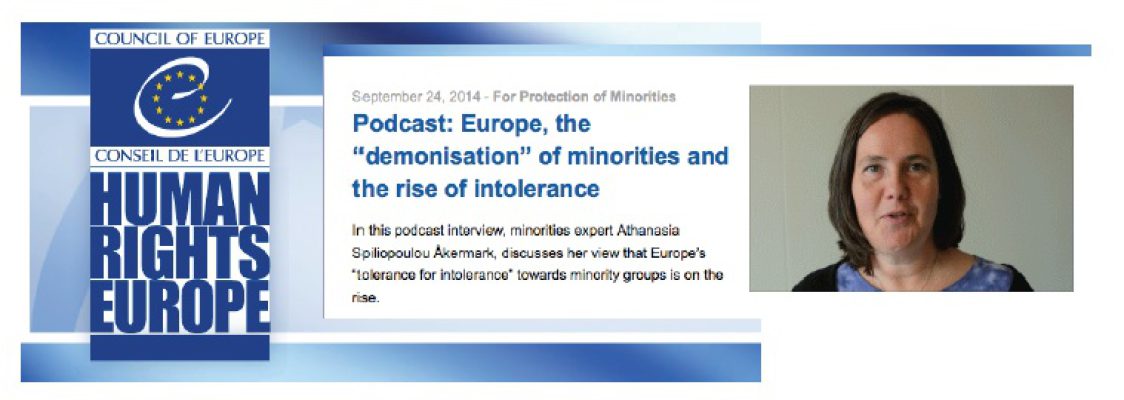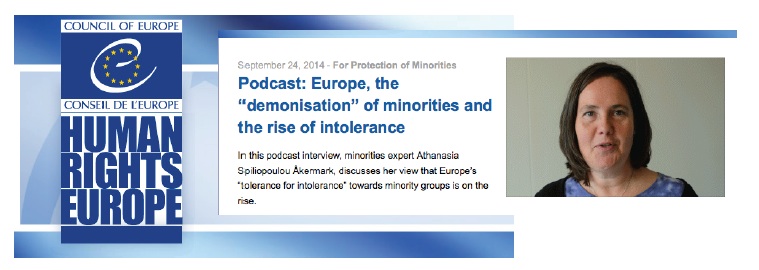Another conclusion that Sia Spiliopoulou Åkermark highlighted in Strasbourg, is that while it is positive that legislation on minorities has been introduced in many countries, this in itself is not at all sufficient. States have a vital role in actively affirming and promoting an integrated, inclusive and diverse society, says Spiliopoulou Åkermark. A further key challenge for public authorities is the fact that national minorities are not homogeneous groups, making communicating with and accommodating them a challenging process, as well as attending to their legitimate needs through appropriate and adaptable solutions.
Furthermore, Spiliopoulou Åkermark finds that issues concerning minority language education, as well as the persisting marginalization of the Roma remain as acute problems in Europe.
Sia Spiliopoulou Åkermark has been an expert member of the Council of Europe’s Advisory Committee, in 2002-2006 and in 2010-2014, i.e. during eight years in total. Her mandate as president of the Committee (2012-2014) has included monitoring visits and Committee Opinions adopted concerning, among other, Ukraine, Denmark, Bulgaria and Russia.
The Advisory Committee’s report for 2012-2014 is available here.
A podcast with Spiliopoulou Åkermark commenting and developing her thoughts about the report is available here.




